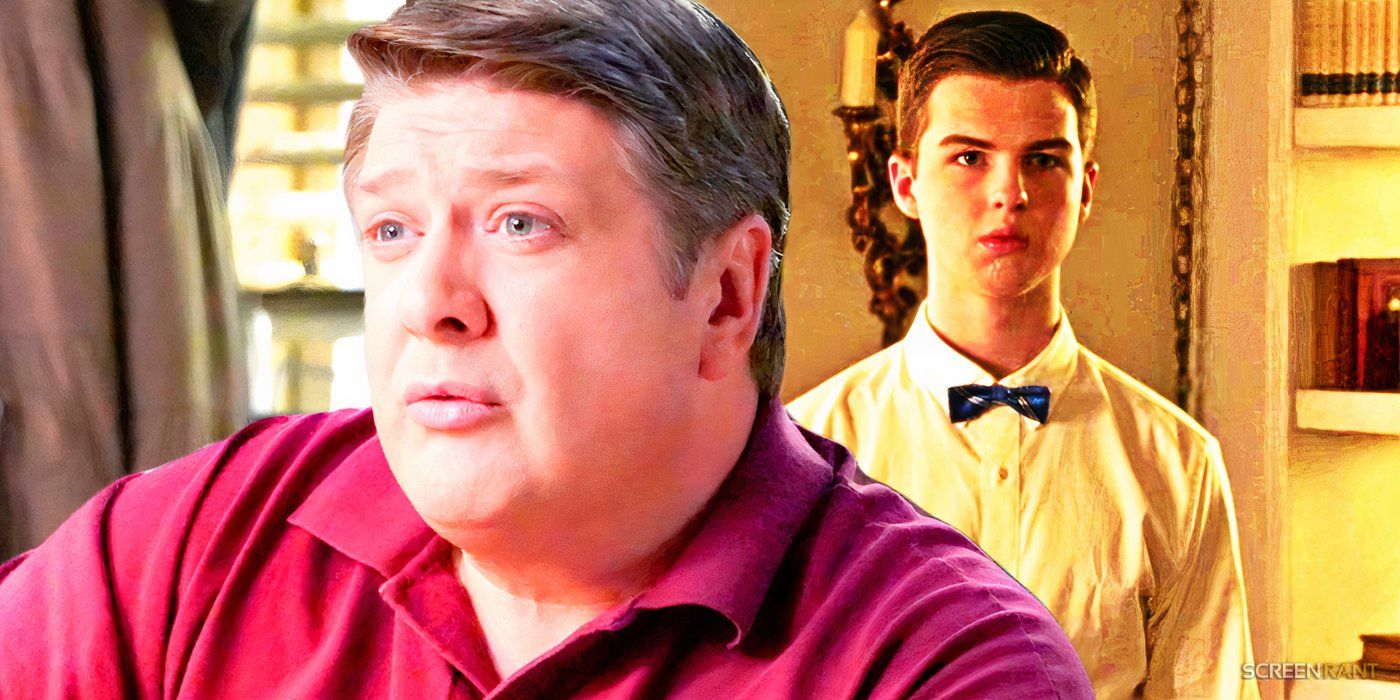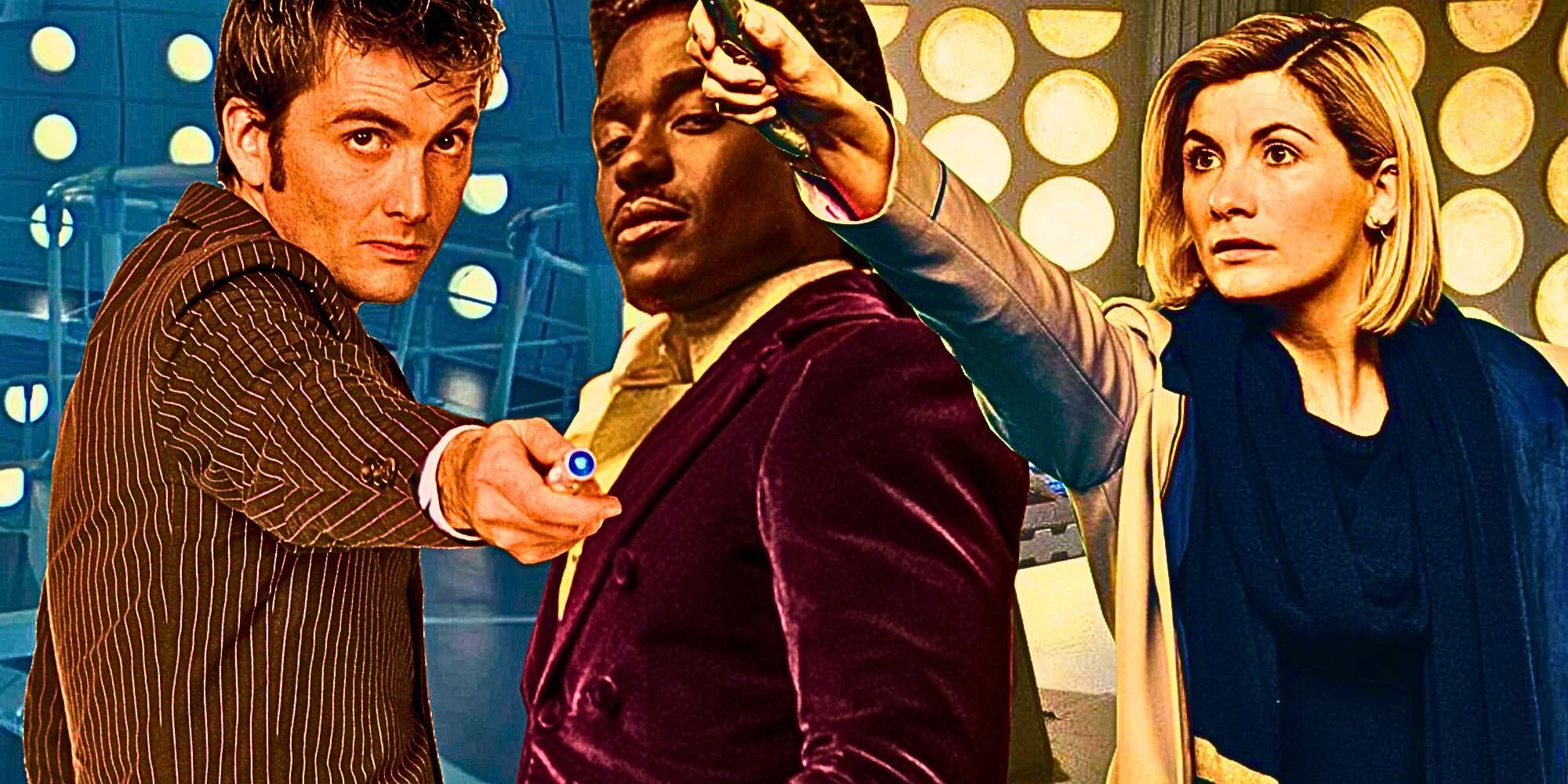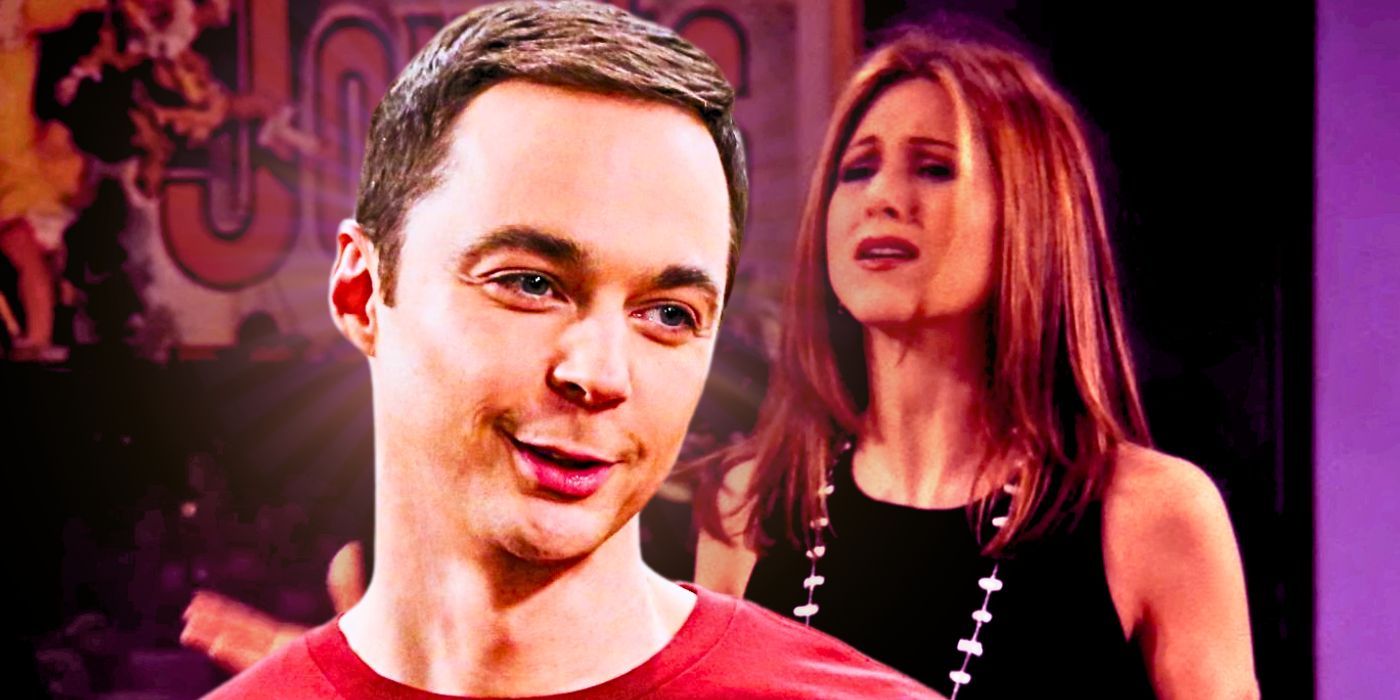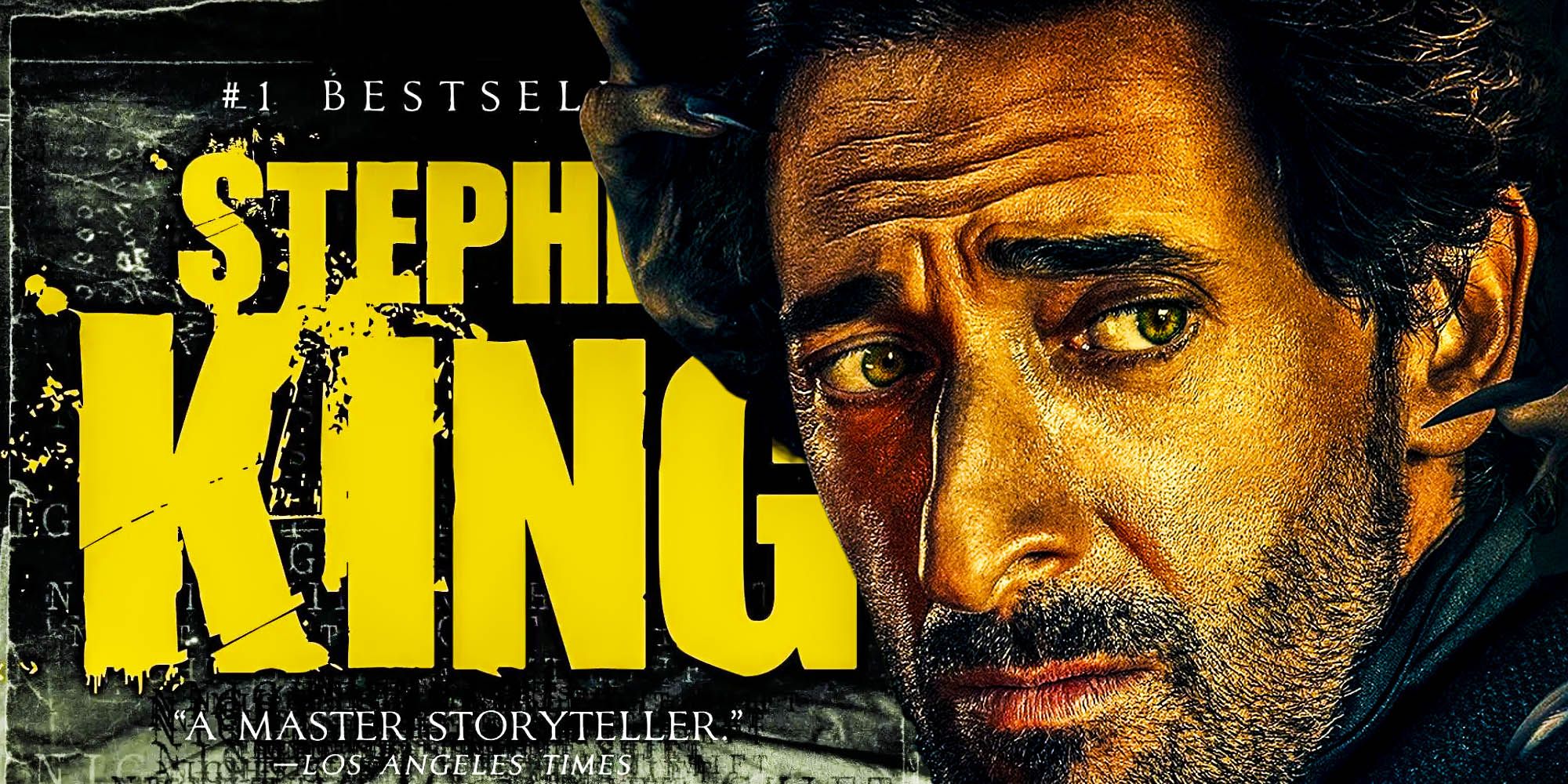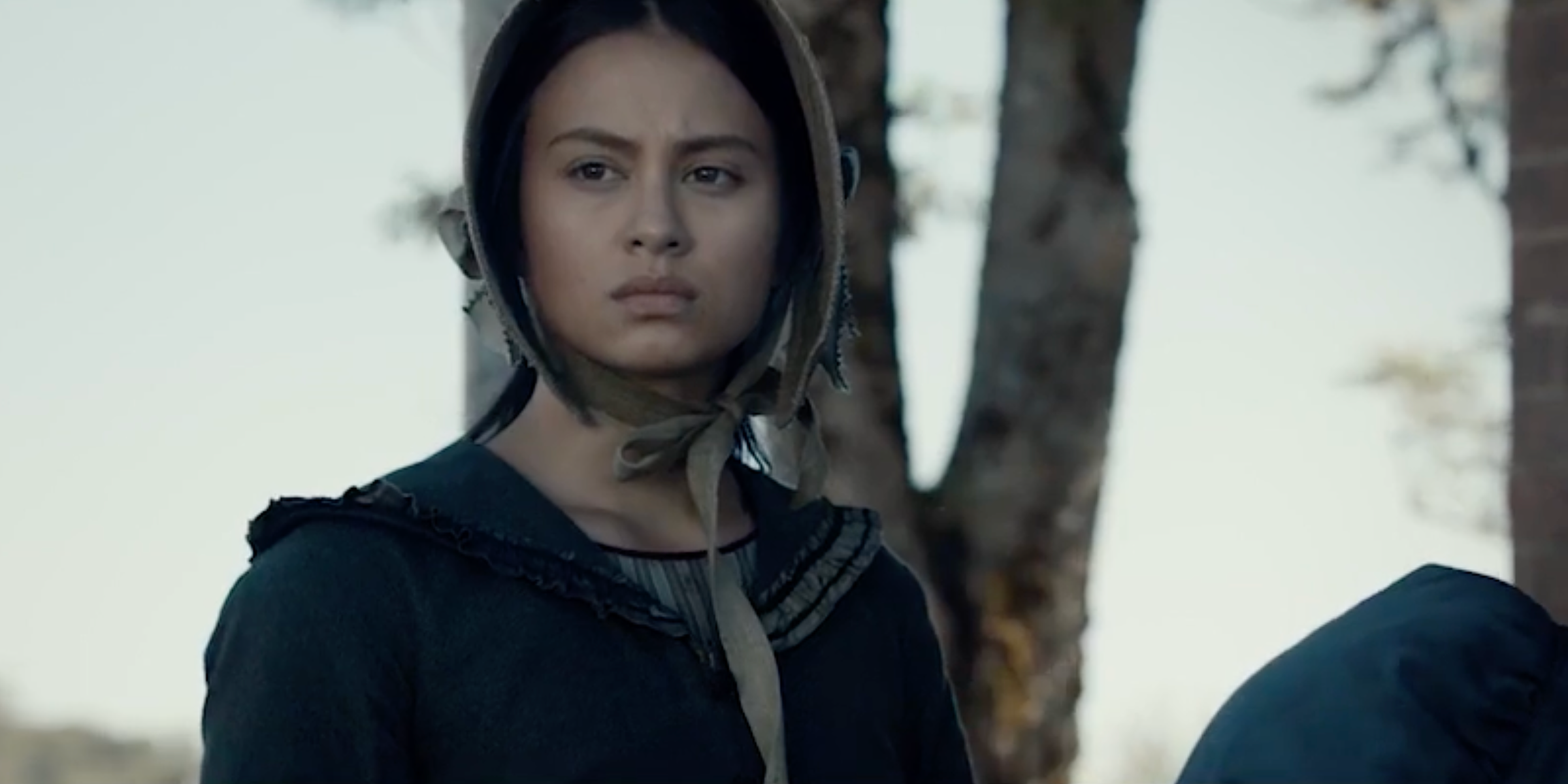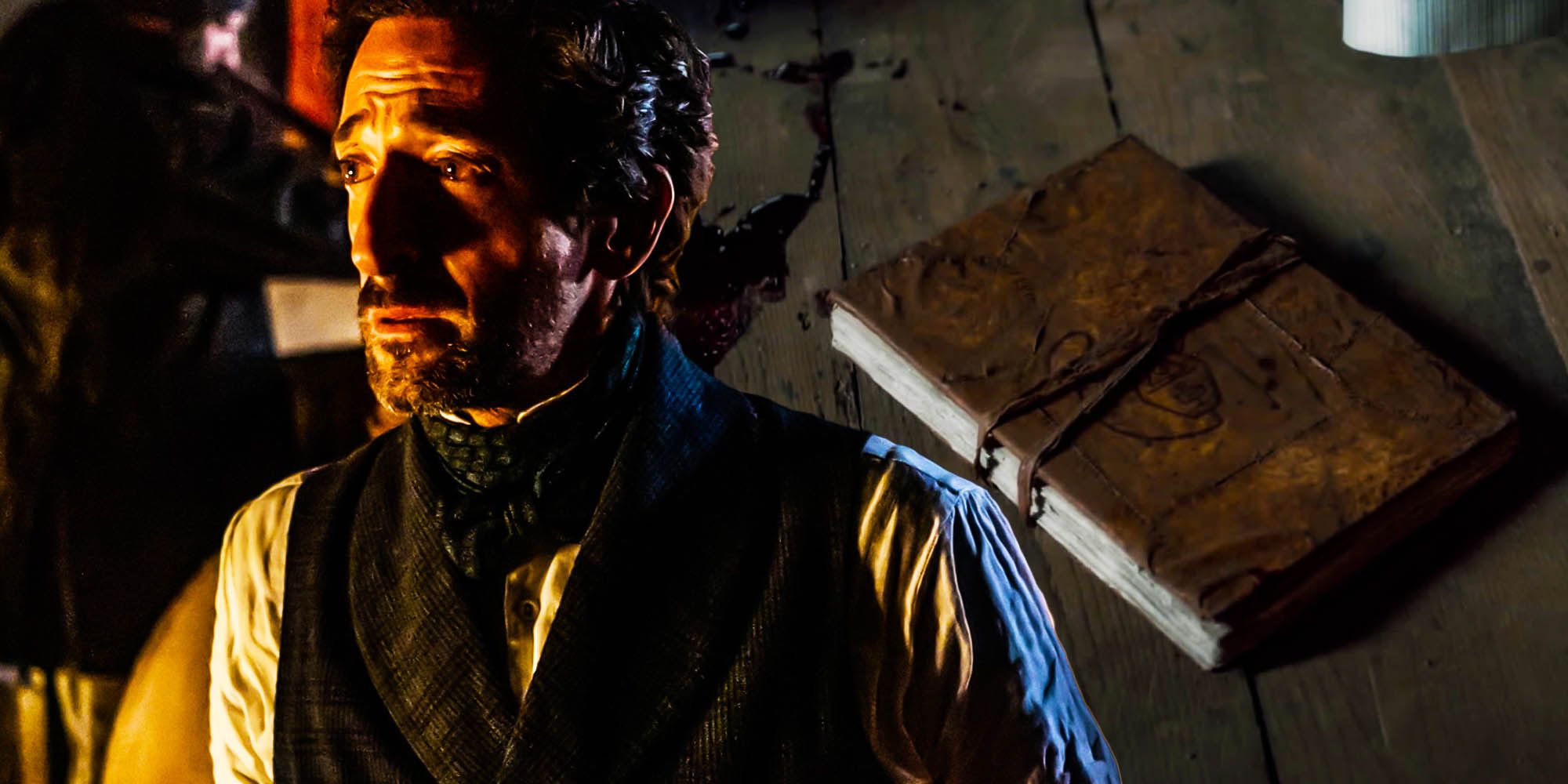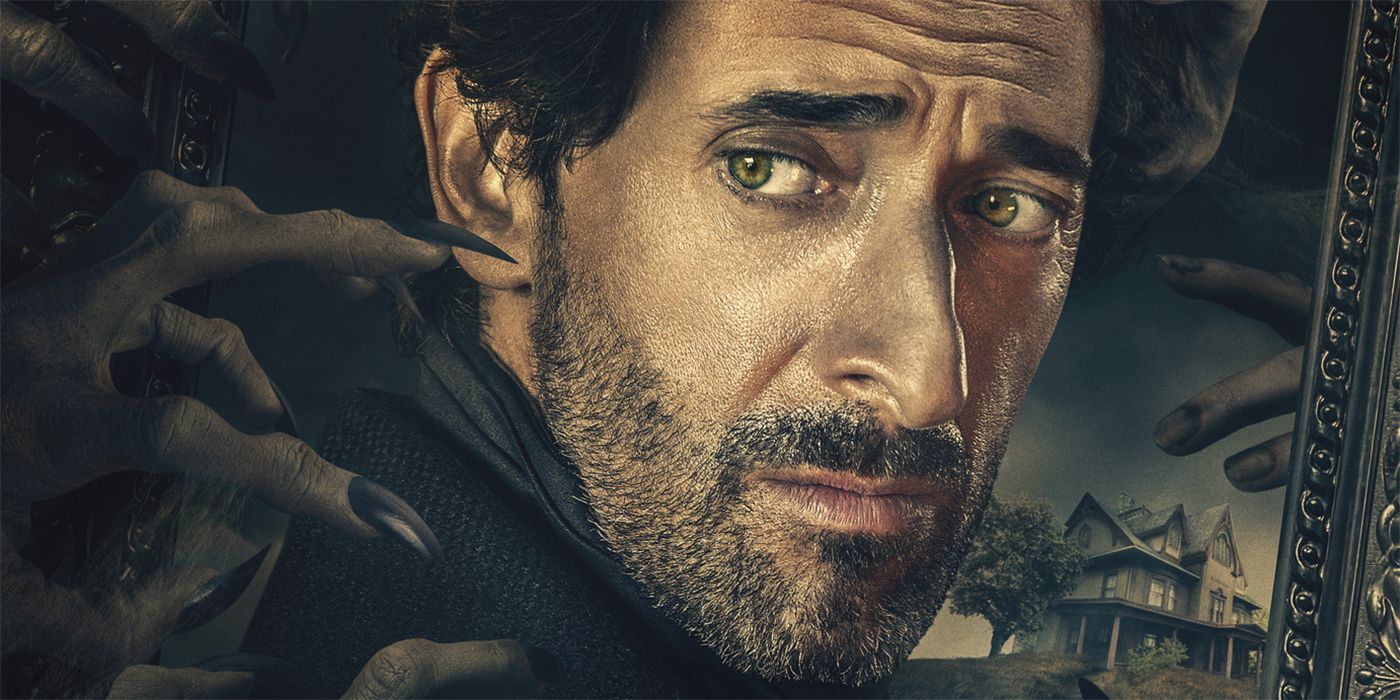The Stephen King adaptation Chapelwaite wrapped up with a brutally tragic climax, but what did the bleak ending of the horror miniseries mean? While the miniseries Chapelwaite was not a critical flop, the Stephen King adaptation did suffer from a case of unfortunate timing and being on a much smaller streaming platform with Epix. Chapelwaite premiered in late August 2021, a month before Netflix’s critically-acclaimed Midnight Mass arrived on screens, but Chapelwaite's ending was just as impactful.
Both shows centered around small communities plagued by vampires, but the austere period piece Chapelwaite had a harder time reaching audiences than its more contemporary competitor Midnight Mass. Starring the always-underrated Adrien Brody as troubled widower Charles Boone, Chapelwaite followed Charles’ relocation to the small Maine town Preacher’s Corners after the death of his wife. This being a Stephen King adaptation, the community is not as quiet and harmless as it initially seems, and soon, Charles and his three children are caught up in a generations-long battle against the undead.
Midnight Mass Ending & Real Meaning Explained: Why It's A Happy End
Shortly after arriving in Preacher’s Corners, Charles’ supposedly dead cousin, Stephen (Steven McCarthy), who had been resurrected as a vampire, revealed that he brought the heartbroken captain to the small town to hunt down a long-lost book, De Vermis Mysteriis. In a plot that expanded on “Jerusalem’s Lot,” a short story from Stephen King’s Night Shift, Chapelwaite revealed that the Boone family had been cursed for generations and needed a living Boone to find De Vermis Mysteriis to lift the curse. Unfortunately for Charles, the monstrous vampire, Jakub (Christopher Heyerdahl), also wanted the book to summon eternal darkness and doom humanity to Hell on Earth. Thus, Charles and his family were thrust into an age-old battle between good and evil that, in Chapelwaite’s tragic ending, cost many of them their lives.
What Happens In Chapelwaite’s Ending
Chapelwaite ended with Charles and company laying siege on Jakub’s church, a rundown ruin in the nearby abandoned village of Jerusalem's Lot. In a climax not unlike that of the legendary Stephen King miniseries Salem’s Lot, Boone’s group defeated and killed Jakub and seemingly saved the community from vampires and Charles' family from the curse. Unfortunately, the vampires kept coming despite their leader being defeated, while Stephen stealing De Vermis Mysteriis meant that the curse was still active. Charles killed Stephen to retrieve the book but soon discovered that the curse was not lifted by defeating his undead relative. This led Charles to sacrifice himself by becoming a vampire and the figure responsible for safeguarding the book in Chapelwaite's ending, ensuring it never got into the hands of another living Boone or another undead vampire. In order to keep his children safe, he made the heartbreaking final decision to place them in the care of their former nanny and Charles' love interest, Emily Hampshire (Rebecca Morgan), and leave them for good, ensuring that no vampire who might come after the book would ever get near his children.
Why Didn’t Killing Jakub and Stephen End The Curse?
The curse on the Boone family brought upon them by John Boone in 1780 stipulated that a living member of the clan had to unearth De Vermis Mysteriis. The Stephen King adaptation’s Lovecraft-inspired book contained the key to alleviating Charles’ familial curse, but like the Necronomicon and so many other fictional evil tomes, it couldn’t be destroyed by simple human means. Charles attempted to burn the book, killed Jakub and Stephen to ensure they would never access it, and still found himself gradually being driven to madness by the mere existence of De Vermis Mysteriis and all the ancient horrors and magic it contained. Eventually, to keep the book away from him, Emily took the book and tied it to the body of newly-turned and caged vampire Mary Dennison (Trina Corkum). Miraculously, that act seemed to quiet Charles' madness, leading them to realize that the only way to lift the curse was by returning De Vermis Mysteriis to the undead.
Why Charles Had To Sacrifice His Life
The tragic problem with this idea was that Charles was the only one who could be trusted with the book. Every other vampire had shown they wanted to use the book for their own diabolical ends. By the ending of Chapelwaite, Charles was left with no other decision but to heroically sacrifice his life and leave his family behind to become undead and lift the curse so his children would never suffer from it. Much like the Stephen King-influenced Midnight Mass culminated in a grand sacrifice, Chapelwaite’s ending saw the story of Charles come full circle as the former whaling captain returned to the sea, this time with the book stitched inside his undead chest cavity. This solution ensured the survival of his children but also meant they lost their father just a short time after losing their mother. His children, especially the young Tane, hoped they might one day see their father again. Yet the look on Charles' face as he said goodbye made it clear that he realized the devastating truth: it would never happen. Even bleaker was the reality that this was to be his life from now on, alone and wandering from place to place, forever.
Is Charles Chapelwaite’s Only Surviving Vampire
Although Charles becomes a vampire by dying in Chapelwaite’s ending, he is not the lone bloodsucker left at the close of the series. The majority of vampires in Preacher’s Corner, including Stephen, are killed by Charles and company during the siege that sees the group steal De Vermis Mysteriis. However, the reason that Charles insists on sacrificing himself is that he knows that other bloodsuckers will soon come looking for the book if he does not take on the responsibility of becoming its immortal keeper. Still, Charles isn't the only vampire left: Loa also survived the slaughter at Jerusalem's Lot when Charles hid her away. Loa's fate is almost as bleak as Charles.
In Chapelwaite's universe, vampires can choose to be as amoral and unfeeling as they wish, meaning they can also choose to remain as human as possible. Despite Honor and Tane not trusting Loa after her betrayal of stealing the book, Charles asks them to forgive her when it's clear Loa does not want to become like her more monstrous brethren. Yet, Charles refuses to let Loa accompany him, wanting her to stay with her sister and brother and to have a semblance of a normal life. But a normal life isn't possible for Loa. She can only come out at night, and, now that there are no vampires left in Jerusalem's Lot or Preacher's Corner, she is doomed to an existence almost as lonely as that of Charles.
What Chapelwaite’s Ending Really Means
The sight of Charles sailing off to sea in his small boat is a harrowing one, but the ending of Chapelwaite is not necessarily as relentlessly downbeat as one might assume on first viewing. It is a brutal end for Charles, and the sight of his children losing their father so soon after their mother is tragic. However, much like Midnight Mass’ ending saw its heroes sacrifice their lives to contain the undead threat, Chapelwaite’s ending sees the hero sacrifice himself for something more important than his own life and to ensure that his children grow up free as a result. If Charles had failed to accept his guardianship of De Vermis Mysteriis, he would have passed the curse down to the next generation of Boone children and been no better than Stephen. His willingness to suffer so that his children can live freely shows that Charles’ life had a noble purpose, even if it was a deeply sad one.
Early on in Chapelwaite, Charles is left heartbroken by the death of his wife and can’t see a point in his existence. Like King’s original novel The Shining saw Jack Torrance sacrifice his life to save his son and wife from the haunted hotel, the climax of Chapelwaite gives Charles a purpose even as though the story also takes away his human life. His future is hard, but by knowing he broke the curse and kept his children safe, he can take that grim satisfaction with him. By Chapelwaite’s end, both Charles’ life and death have meaning, and the seemingly inexplicable brutality he has endured makes sense.


